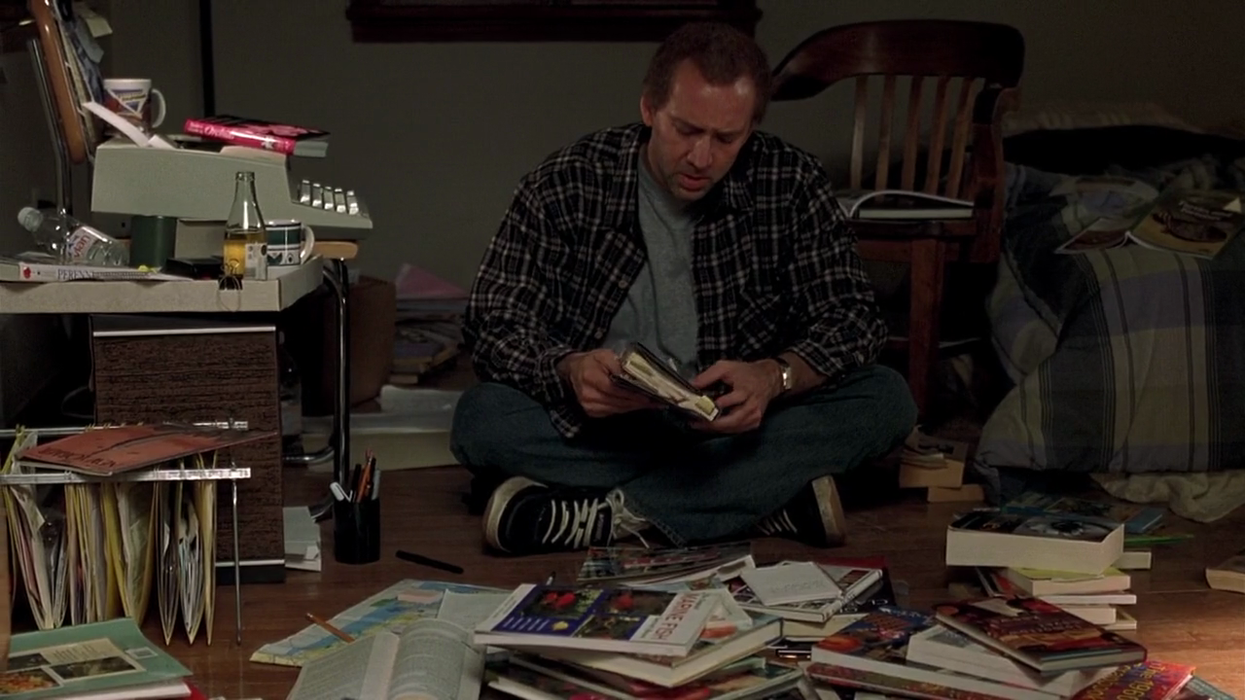Why You Should Let People Hate Your Films
"What makes something great may also be one of its weaknesses." -Bruce Springsteen

No filmmaker wakes up one day and says, "I'm going to make a terrible movie!" We all work so hard to bring our little cinematic babies into the world and have high hopes and big dreams for their future success, but sometimes most of the time every time we release them out into the gauntlet of public viewing, we're met with the harsh reality that other people do not find our precious child as adorable as we do.
And that criticism is brutal. The anonymity of the internet allows armchair film experts to spread their judgments like wildfires, rendering the product of your creative toil to a heap of burning garbage with a stench so hot it singes your nose hairs.
But this is why you should let the haters hate and keep making your films.
This video comes from video essayist Declan Taaffe, who does us all a major solid by revealing how even our most celebrated filmmakers, like David Fincher, Quentin Tarantino, and Agnès Varda, saw their work picked apart and criticized—and not just by some random dude on YouTube who thinks he's an expert on film because he's seen a couple Tarkovsky movies—and still managed to make out it the other end.
People Will Hate Your Work Regardless
Everyone's a critic. There will be plenty of people out there who completely dog on your work, calling it amateurish, pretentious, derivative, and a host of other unflattering adjectives that will no doubt want to make you want to take your camera out to an empty field and go full Office Space on it.
The worst thing about this, as Taaffe mentions, is that these critics aren't always wrong. Your work might be rigid, sophomoric, or kind of full of itself, and your reaction to that realization might be to "fix" it and "evolve" as a filmmaker. While using criticism for growth and improvement can be good, changing your creative approach only to make it fit in with others creatives may not be.
There are a couple reasons for that:
- You have a unique creative voice. Stepping up to belt your solo is much more difficult if you're busy harmonizing.
- Sometimes it's your film's flaws that make it truly great.
Instead of using those harsh criticisms to sharpen the knife that cuts into your creative fervor, use them to sharpen your skills.
Your Film Might Be Great Because of Its Flaws
The fear of failure is paralyzing. It can cause even the most talented among us to shy away from creating something they're really excited about because they're afraid of making something that will inevitably be unaccepted. However, Taaffe pulls a great quote from singer/songwriter Bruce Springsteen, "What makes something great may also be one of its weaknesses."
It's true. Flaws and assets are not always mutually exclusive. Sometimes, as Springsteen says, the supposed flaws are what give your work its "beauty, power, and magic."
Besides, there's no such thing as "perfect art." As a community, we talk a lot about "perfect" story structure, "perfect" composition, and "perfect" performances, but art, in all of its unshackled glory, is so deliciously subjective and inherently cannot be considered "perfect." That's like saying your favorite color is perfect. "Blue is shallow. Orange is too rigid. You're clearly an untalented hack if you paint a picture with anything other than the superior color, red."
Remember What Excited You About Your Project
So, here you are. A lot of the feedback you've received has been negative and you're starting to doubt if you should continue. What do you do?
According to David Fincher, you should try to remember what excited you about your project in the first place. What made you want to make the thing? What made you fall in love with the idea? Go back to that and resolve to dwell in a space that encourages creativity rather than stifles it.
Because there will be plenty of people out there telling you to stop, whether it's through comments online or movie reviews, and you're going to need to be able to rely on yourself, at least, to be a voice telling you to keep going.
If you need a little more encouragement, here's another one of our articles that may inspire you to keep making art in spite criticism.
Source: Writing with the Camera














